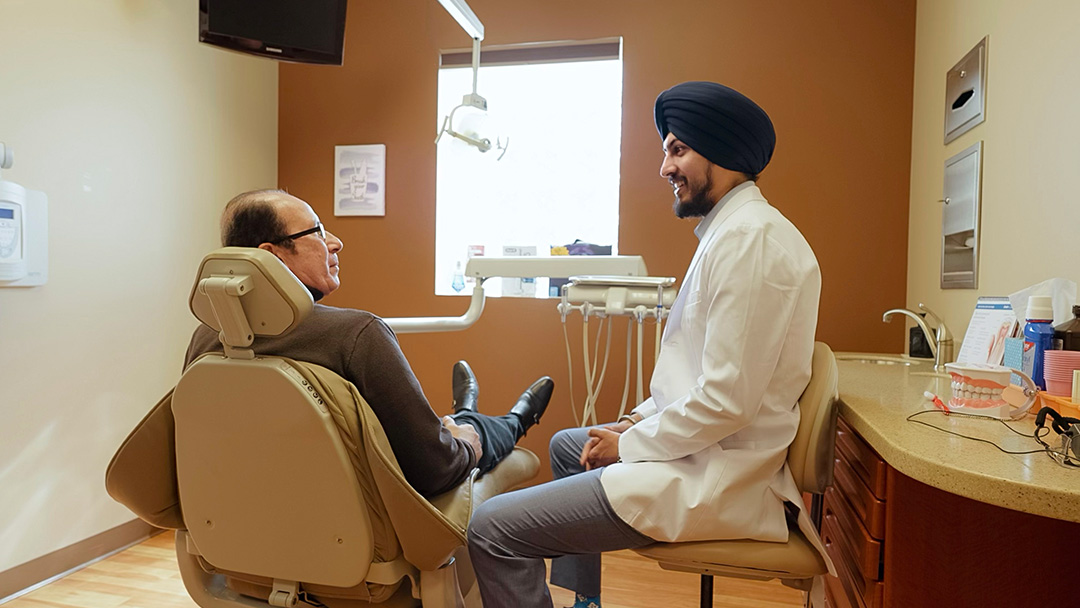When it comes to maintaining a healthy smile, most people only think about brushing, flossing, and seeing our Southgate, MI, dentists for a professional teeth cleaning. While these practices remain essential, what you eat also plays a crucial role in your oral health, particularly your gum health. At Northline Dental, we offer comprehensive services like dental implants, porcelain crowns, and root canal therapy, but prevention through proper eating habits can significantly reduce the need for these procedures.
Here’s why your gum tissue is worth caring about and what nutrients are better to consume for a healthier smile.
The Importance of Gum Health
Healthy gums are – you guessed it – the foundation of a healthy mouth. They support your teeth and protect the underlying bone. Poor gum health can lead to gum disease in the form of gingivitis, which is reversible, or in more serious cases, periodontitis, which is not. The latter is a leading cause of tooth loss in adults and any onset of gum disease can cause inflammation, bleeding, and eventually, loss of teeth if not properly managed by our dentists.
How Diet Affects Gum Health
What you eat or drink on a daily basis can have long-term effects on your well-being. For example, if you primarily reach for junk food, it’s no surprise when cavities are found down the road, not to mention other health complications later in life. We’ve all heard it before but treats are fine as long as you enjoy them in moderation. Overall, there should be a balance.
Your diet ideally should include vegetables, fruits, whole grains, and lean protein. Think of that quintessential food pyramid you learned about in school and try to check off something from each layer when shopping at the grocery store. The general recommendation is to have half of your plate be some mixture of fruits and veggies, ¼ whole grains, and another ¼ protein.
Our dentists recommend diversifying your diet and trying to include:
1. Vitamins and Minerals
- Vitamin C: This vitamin is vital for the production of collagen, which is a key component of gum tissue. A deficiency in vitamin C can lead to weakened gums and increase the risk of gum disease. Citrus fruits, strawberries, and bell peppers are excellent sources of vitamin C.
- Calcium: Calcium is essential for strong bones and teeth. It also helps in maintaining the integrity of your jawbone, which supports your teeth. Dairy products, leafy greens, and fortified plant-based milks are good sources of calcium.
- Vitamin D: This vitamin helps the body absorb calcium. Sun exposure and foods like fatty fish, egg yolks, and fortified foods can boost your vitamin D levels.
- Omega-3 Fatty Acids: Found in fish, flaxseeds, and walnuts, omega-3 fatty acids have anti-inflammatory properties that can help reduce gum inflammation and promote overall gum health.
2. Antioxidants
Antioxidants help protect gum tissues from cellular damage and bacterial infections. Foods rich in antioxidants, such as berries, nuts, and green tea, can support gum health by combating oxidative stress and inflammation.
3. Fiber
High-fiber foods like fruits, vegetables, and whole grains stimulate saliva production, which helps cleanse the mouth and neutralize acids produced by bacteria. Saliva also contains enzymes that fight harmful bacteria, reducing the risk of gum disease.
Foods to Avoid for Healthy Gums
Certain foods can have a detrimental effect on your gum health. Consciously limiting or avoiding the following can help you stay on track and maintain healthy gums:
- Sugary Foods and Drinks: Sugar feeds harmful bacteria in the mouth, leading to plaque buildup and gum disease. Sodas, candies, and baked goods are common culprits.
- Acidic Foods and Drinks: Citrus fruits, tomatoes, and vinegar-based foods can erode the enamel and irritate the gums if consumed in excess.
- Processed Foods: These often contain preservatives and additives that can contribute to inflammation and poor oral health. Opt for whole, unprocessed foods whenever possible.
Practical Tips for a Gum-Healthy Diet
Your smile won’t magically keep itself in good shape. You have to make the effort each day to cycle through your oral hygiene routine multiple times and attend cleanings inside our Southgate dental office when the time comes.
You can also complement positive oral care habits by:
- Staying Hydrated: Drinking plenty of water helps wash away food particles and bacteria, maintaining a clean oral environment.
- Balancing Your Meals: Ensure your diet includes a variety of nutrients by consuming different types of fruits, vegetables, proteins, and whole grains.
- Chewing Sugar-Free Gum: Chewing gum can stimulate saliva production, which helps clean your teeth and gums.
Give Our Office a Call
Maintaining healthy gums requires a combination of good oral hygiene practices and a diet rich in essential nutrients. By making mindful food choices, our dentists in Southgate, MI, are confident that you can significantly improve your gum health and reduce the risk of gum disease. Call Northline Dental today at (734) 284-8088 to request an appointment.


